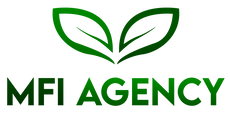
Top 3 Recommended Policies

Texas is known for its vast agricultural landscape, rich soil, and diverse farming practices. As a cornerstone of the economy, agricultural suppliers play a vital role in supporting farmers and ranchers throughout the state. However, like any other business, agricultural suppliers face unique risks that can jeopardize their operations. This is where agricultural supplier insurance comes into play. This comprehensive guide will cover everything you need to know about Texas agricultural supplier insurance, from its importance to the types of coverage available.
Understanding Agricultural Supplier Insurance
Agricultural supplier insurance is designed to protect businesses that provide goods and services to the agricultural sector. This includes suppliers of seeds, fertilizers, equipment, and other essential products. The insurance helps mitigate risks associated with property damage, liability claims, and other unforeseen events that could disrupt operations. In addition to safeguarding physical assets, this type of insurance can also cover loss of income due to business interruptions, ensuring that suppliers can maintain financial stability even in challenging circumstances.
In Texas, where agriculture is a significant part of the economy, having the right insurance coverage is crucial for the sustainability and growth of agricultural suppliers. Understanding the various aspects of this insurance can help businesses make informed decisions and safeguard their investments. Furthermore, with the increasing unpredictability of weather patterns and market fluctuations, having a robust insurance policy is not just a precaution; it’s a strategic necessity for long-term viability in the agricultural supply chain.
Why Is Insurance Essential for Agricultural Suppliers?
Insurance is essential for agricultural suppliers for several reasons. First and foremost, it provides financial protection against potential losses. Whether it's damage to property, equipment failure, or liability claims arising from product defects, insurance can help cover the costs associated with these incidents. This financial cushion allows suppliers to focus on their core business activities without the constant worry of unexpected expenses derailing their operations.
Moreover, having insurance enhances credibility. Suppliers with adequate insurance coverage are often viewed as more reliable by farmers and ranchers. This can lead to increased business opportunities and stronger partnerships within the agricultural community. Additionally, many agricultural contracts now require suppliers to have specific insurance coverage, making it not only a matter of risk management but also a competitive advantage in securing contracts and expanding market reach.
Common Risks Faced by Agricultural Suppliers
Agricultural suppliers face a variety of risks that can impact their operations. Some of the most common risks include:
- Property Damage: Natural disasters such as floods, hurricanes, or tornadoes can cause significant damage to facilities and inventory. The financial implications of such events can be devastating, especially for smaller suppliers who may not have the resources to recover quickly.
- Liability Claims: Suppliers may face lawsuits if their products cause harm to customers or damage to property. This risk is particularly pronounced in the agricultural sector, where the use of chemicals and machinery can lead to serious accidents.
- Equipment Failure: Breakdown of essential machinery can lead to delays in service and financial losses. Regular maintenance and timely upgrades are crucial, but even the best-maintained equipment can fail unexpectedly, underscoring the importance of having insurance to cover repair or replacement costs.
Understanding these risks is the first step in determining the appropriate insurance coverage needed to protect against them. Additionally, suppliers should consider the unique challenges posed by their specific operations, such as the types of products they offer and the geographic areas they serve. Tailoring insurance policies to meet these unique needs can provide even more comprehensive protection and peace of mind.
Types of Coverage Available
Texas agricultural supplier insurance encompasses various types of coverage tailored to meet the specific needs of suppliers. Each type of coverage addresses different risks and can be customized based on the supplier's operations.
General Liability Insurance
General liability insurance is a fundamental coverage for agricultural suppliers. It protects against claims of bodily injury, property damage, and personal injury that may arise from business operations. For instance, if a customer slips and falls at a supplier's facility, this insurance can cover medical expenses and legal fees.
Additionally, general liability insurance can also cover damages caused by products sold by the supplier. This is particularly important for suppliers of agricultural chemicals or fertilizers, where product liability claims can be significant. Suppliers should also be aware that general liability insurance can extend to cover advertising injuries, such as copyright infringement or defamation, which can arise from marketing materials or promotional campaigns.
Property Insurance
Property insurance is crucial for protecting the physical assets of agricultural suppliers. This coverage typically includes protection for buildings, equipment, inventory, and other property owned by the business. In the event of a fire, theft, or natural disaster, property insurance can help cover the costs of repairs or replacement.
In Texas, where severe weather events are common, having robust property insurance is vital. Suppliers should assess their specific risks and ensure their coverage limits are adequate to cover potential losses. Furthermore, additional endorsements, such as business interruption insurance, can be beneficial. This type of coverage can help replace lost income if a supplier's operations are halted due to a covered event, allowing them to maintain financial stability during challenging times.
Commercial Auto Insurance
For agricultural suppliers that use vehicles for deliveries or transportation of goods, commercial auto insurance is necessary. This coverage protects against accidents involving company vehicles and can cover damages to other vehicles, property, and medical expenses for injuries sustained in an accident.
In Texas, where distances between farms and suppliers can be significant, having reliable commercial auto insurance is crucial for ensuring smooth operations and minimizing financial risks associated with vehicle-related incidents. Additionally, suppliers may want to consider adding coverage for non-owned vehicles, which can protect against liabilities when employees use their personal vehicles for business purposes. This can provide an extra layer of security and peace of mind, ensuring that suppliers are comprehensively covered while conducting their daily operations.

Factors Influencing Insurance Costs
The cost of agricultural supplier insurance can vary widely based on several factors. Understanding these factors can help businesses budget effectively and find the best coverage options.
Type of Coverage
The type and amount of coverage selected will significantly influence insurance costs. More extensive coverage with higher limits will generally result in higher premiums. Businesses should evaluate their specific needs and risks to determine the appropriate level of coverage. For instance, suppliers may need to consider specialized coverage options such as crop insurance, liability insurance, or equipment breakdown coverage, each tailored to protect against unique risks inherent in the agricultural sector. Additionally, seasonal fluctuations in agricultural production can impact coverage needs, necessitating a review of policies at different times of the year to ensure adequate protection.
Business Size and Revenue
Larger suppliers with higher revenues may face higher insurance premiums due to the increased risk associated with larger operations. Insurers often consider the size of the business, the number of employees, and the volume of sales when calculating premiums. Moreover, the geographical location of the business can also play a significant role; suppliers in areas prone to natural disasters, such as floods or droughts, may encounter additional costs. It is essential for businesses to assess their operational scale and market presence, as these factors can influence not only the cost but also the type of coverage that is most beneficial for their specific situation.
Claims History
A supplier's claims history can also impact insurance costs. Businesses with a history of frequent or severe claims may face higher premiums, as insurers view them as higher risk. Conversely, suppliers with a clean claims history may qualify for lower rates and discounts. Insurers often reward businesses that demonstrate effective risk management practices, such as implementing safety protocols or investing in training for employees. Additionally, maintaining an open line of communication with the insurance provider can help businesses understand how their claims history affects their premiums and what steps they can take to mitigate future risks, potentially leading to more favorable terms in their insurance agreements.
How to Choose the Right Insurance Provider
Selecting the right insurance provider is crucial for ensuring that agricultural suppliers receive the best coverage for their needs. Here are some tips for choosing the right provider:
Research and Compare Providers
Start by researching different insurance providers that specialize in agricultural supplier insurance. Look for companies with a strong reputation, positive customer reviews, and experience in the agricultural sector. Comparing quotes and coverage options from multiple providers can help identify the best fit. Additionally, consider reaching out to fellow agricultural suppliers for recommendations, as their firsthand experiences can provide valuable insights into the reliability and effectiveness of various providers. Online forums and industry associations can also serve as excellent resources for gathering opinions and experiences related to specific insurance companies.
Evaluate Customer Service
Customer service is an essential factor to consider when choosing an insurance provider. Suppliers should look for companies that offer responsive support and clear communication. A provider that is easy to reach and willing to assist with claims can make a significant difference in times of need. Furthermore, it can be beneficial to assess the availability of customer service representatives, such as whether they offer 24/7 support or have dedicated agents familiar with agricultural issues. Understanding how claims are processed and the average turnaround time for claims resolution can also provide insight into the level of service you can expect.
Check Financial Stability
It's important to choose an insurance provider with a strong financial standing. A financially stable company is more likely to fulfill its obligations in the event of a claim. Ratings from agencies such as A.M. Best can provide insights into the financial health of insurance companies. Additionally, reviewing the insurer's history of claim payouts and their response to past crises can offer further assurance of their reliability. A provider that has weathered economic downturns or natural disasters successfully may have a proven track record of supporting its clients during challenging times, making them a more trustworthy choice for your insurance needs.
Understanding Policy Terms and Conditions
Before signing an insurance policy, it's essential to thoroughly understand the terms and conditions. This includes knowing what is covered, what is excluded, and any limitations or deductibles that may apply. Taking the time to read through the fine print can save policyholders from unexpected financial burdens later on. Additionally, it is advisable to ask questions and seek clarification from the insurance provider on any terms that are unclear, ensuring that there is no ambiguity in the coverage being purchased.
Coverage Limits
Coverage limits refer to the maximum amount an insurance provider will pay for a covered claim. Suppliers should ensure that their coverage limits are adequate to cover potential losses. Underinsuring can lead to significant out-of-pocket expenses in the event of a claim. It is also important for suppliers to regularly reassess their coverage limits, especially as their business grows or changes. Factors such as increased inventory, new equipment, or expanded operations can all necessitate a reevaluation of coverage to ensure that they remain adequately protected against potential risks.
Exclusions and Limitations
Every insurance policy has exclusions—specific situations or conditions that are not covered. It's crucial for agricultural suppliers to read and understand these exclusions to avoid surprises when filing a claim. Common exclusions may include certain types of natural disasters or specific product liabilities. Furthermore, some policies may have limitations on coverage for specific events, such as flooding or pest infestations, which are particularly relevant for those in the agricultural sector. By being aware of these exclusions, suppliers can take proactive measures to mitigate risks, such as purchasing additional coverage or implementing preventive strategies to safeguard their assets.
Deductibles
A deductible is the amount the policyholder must pay out of pocket before insurance coverage kicks in. Suppliers should consider their financial situation when selecting deductibles. Higher deductibles may lead to lower premiums, but they also mean more significant costs in the event of a claim. It's advisable for suppliers to strike a balance that aligns with their risk tolerance and cash flow capabilities. Additionally, understanding how deductibles apply to various types of claims—whether they are per incident or annual—can further inform their decision-making process. This knowledge can empower suppliers to make informed choices that best suit their operational needs and financial health.
Benefits of Working with an Insurance Agent
Working with an insurance agent can provide numerous advantages for agricultural suppliers. An experienced agent can help navigate the complexities of insurance and ensure that businesses receive the best coverage for their needs.
Personalized Guidance
Insurance agents can offer personalized guidance based on the specific needs and risks of agricultural suppliers. They can assess the unique circumstances of a business and recommend tailored coverage options that align with its operations.
Claims Assistance
In the event of a claim, having an insurance agent can be invaluable. Agents can assist with the claims process, ensuring that all necessary documentation is submitted and that the claim is handled efficiently. This support can reduce stress and help suppliers receive timely compensation.
Access to Multiple Providers
Insurance agents often work with multiple insurance providers, giving suppliers access to a range of coverage options and competitive rates. This can lead to better deals and more comprehensive coverage tailored to the specific needs of agricultural suppliers.
Agricultural suppliers in Texas must also be aware of various regulations that may impact their insurance needs. Compliance with state and federal regulations can help ensure that businesses operate legally and avoid potential fines or legal issues.
Understanding State Regulations
Texas has specific regulations governing agricultural practices and supplier operations. Suppliers should familiarize themselves with these regulations to ensure compliance and understand how they may impact insurance requirements.
Federal Regulations
In addition to state regulations, federal laws may also apply to agricultural suppliers, particularly those dealing with food safety or environmental concerns. Compliance with these regulations can influence insurance needs and coverage options.

Conclusion
Texas agricultural supplier insurance is a critical component for businesses involved in the agricultural sector. By understanding the various types of coverage available, the risks faced, and the factors influencing insurance costs, suppliers can make informed decisions that protect their investments.
Choosing the right insurance provider, understanding policy terms, and working with an experienced agent can further enhance the protection offered by agricultural supplier insurance. As the agricultural landscape continues to evolve, having adequate insurance coverage will remain essential for the sustainability and growth of agricultural suppliers in Texas.
Contact Us

